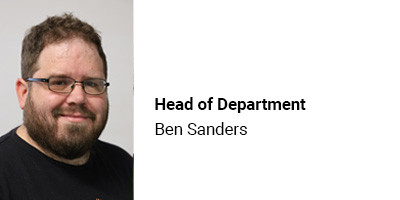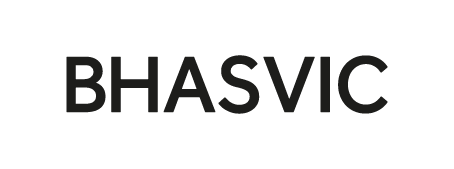I.T. (Cybersecurity & Web Development) AAQ
Qualification: Extended Certificate in Information Technology (AAQ Level 3 BTEC National)
Exam Board & Specification Code: Pearson; Specification
Course Entry Requirements: 4 in English Language GCSE. It is possible to study any combination of Computer Science A level, Application and Games Development AAQ L3 and IT (Cybersecurity and Web Development) AAQ L3 together. We will discuss this with you during the admissions and enrolment process and seek advice and approval from the Head of Department.
Please make sure that you have understood the overall entry requirements to study at BHASVIC. These are available here and outline the GCSE grades you need to take up one of the Study Programmes at the college.
Length and size of qualification: 2 year single course
Timetable hours: 4.5 hours per week
Assessment method: A combination of written exams and projects
BHASVIC Department: Computing and I.T.
Read our guide to BTECs at BHASVIC
What will I study?
The course enables students to gain knowledge and experience of the role and implications of using Information Technology systems within organisations. Information technology is a vital part of modern business and wider society, so understanding how it operates can ensure future employment. The subject content includes understanding cyber-security threats and how to manage attacks, developing important skills for creating websites to meet a specific purpose and how to manage data through the development of a relational database solution.
Is this course right for me?
This course is the equivalent to an A level. The nature of Information Technology and its use throughout all aspects of modern society means that the subject complements students with a wide range of interests as well as those with a clear focus in this area. Students often combine this course with one or more subjects from: Business Studies A Level and BTEC, Psychology or Art & Design. For those who are really keen on tech we welcome you to take this course alongside Computer Science A level or Application and Games Development AAQ
Where next?
This qualification gives you a wide range of transferable skills which are vital in most sectors of the economy. Students have various routes they can follow. They can continue with their studies to progress to a university degree which may be broader than the subject, such as Information Systems or other computing related degrees. Undertaking a degree apprenticeship (where you earn a salary and have your university fees paid for) is also another possible progression route. The course can also prepare students for direct entry into a range of careers working with IT. These include employment in such areas as IT support, cyber security or web development. Useful websites to research careers and wider progression options could include The Tech Partnership, Target Careers, BCS The Chartered Institute for IT, All About Careers and The Apprenticeship Guide.
ApplyLast year, 64 BHASVIC students went onto study Computing and IT related degrees at 38 different universities.
Computer Science degrees often combine with other subjects including Maths, Physics, Engineering, Biology, Graphics, Animation. Students can study one or more Computer Science, Computing and IT qualifications at BHASVIC. Popular universities for our students included Leeds, Exeter, Warwick, Bath, Brighton, Manchester, Sussex, UWE and York. 50% of A level Computing students went onto study a Computing related degree.
Should I study Computing or IT at degree level?
Computer science and IT are by no means your only options when choosing a course. Look at the modules as there is a lot of crossover between course content and a really wide variety of degrees to choose from. It’s worth checking whether a degree course is accredited by IT professional bodies, such as the BCS (the British Computer Society) or the IET (Institution of Engineering and Technology). Topics can include: aspects of mathematics, science and engineering, programming, software design, artificial intelligence, cloud computing, cyber security, mobile app development, graphics. Find out whether the universities you are interested in have links with relevant IT employers or there is an option of doing an industrial placement or studying abroad.
There is a huge range of Computing / IT related degrees including:
- Computer science
- Software engineering
- Computer networks
- Artificial intelligence
- Cyber security
- Games development
Entry Requirements
For computing some courses require you to have Maths A level or even Double Maths at the most competitive universities. However, there is such a range of courses available entry requirements can be varied.
Top Universities for Computing/IT
Cambridge, Imperial, Oxford, St Andrews, Warwick
Durham, Southampton, Birmingham, Leeds – all very high student satisfaction scores
UCL, Glasgow, York, Sheffield - all with top graduate prospects
Many of our students choose a combined degree - applications from our students have included:
- Business Computing with Cyber Security
- Computer Science for Games
- Artificial Intelligence
- Computer Science & Mathematics with Industrial Experience (4 years)
Example entry requirements (please check):
A-Level/BTEC equivalents:
Kent ABB (A level)/DDM (BTEC)
Nott Trent BCC (A level)/DMM (BTEC)
Brighton Met (HND with top up) DD (A level)/MM (BTEC)
Some examples of Computing-related degrees that our BHASVIC students have gone onto study in the past few years are:
- Artificial Intelligence
- Business Computing with Cyber Security
- Business Information Systems
- Computer Character Animation
- Computer Science & Mathematics with Industrial Experience (4 years)
- Computer Science (Artificial Intelligence) with a Year-in-Industry
- Computer Science (Cyber Security) with a Year in Industry
- Computer Science with Innovation
- Computer Science and Electronics
- Cyber Security and Forensic Computing
- Data Science
- Games Art & Design
- Games Arts
- Information Technology Management
- Robotics
- Software Engineering for Business
How BHASVIC helps: We have a wide range of information and resources to support students applying for university including subject area guides, personal statement and UCAS resources, super-curricular activity guides, open day and bursary information. We also cover university research, careers, art foundation and all other destinations in depth in tutorial and students can choose an appropriate pathway for them in the second year from UCAS, Employability & Enterprise, Visual Arts, Oxbridge and Medics. Our Spring Futures Fair brings in a huge number of university visitors with workshops and information stands and departments will bring speakers in wherever possible.
From games developer to manager of communications services, studying computing & IT is extremely useful. Possible careers include:
- Applications developer
- Games Designer
- Cyber Security Analyst
- Multimedia Programmer
- Forensic computer analyst
- Systems analyst
- Computational linguist
- Data scientist
- Nano technologist
- Software Engineer
- Web Developer
- Network engineer
- Bioanalysis
- Software tester
Career Prospects
Most businesses rely on computers to function effectively and there are opportunities within the IT departments of major organisations in many sectors. It's also possible to set up your own business providing IT services such as web design and consultancy. 2/5ths of graduates in employment in the UK six months after graduation are working as programmers and software development professionals. Six of the top ten jobs held by graduates are related to computer sciences and include web design and IT operations technician. The UK is very short of programmers and Cyber Security specialists.
Degree Apprenticeships
In recent years a number of our students gained places on higher & degree apprenticeship schemes at companies such as:
- Amazon
- American Express
- Thales
- National Air Traffic Services
- Capgemini
These courses offer a fully-paid higher level qualification, often to degree or Masters level, as well as wage between £13 to £30k per year. They are offered in conjunction with many universities such as Leeds, Queen Marys, Loughborough and Exeter.
Local Market Information
Working in the Cyber Sector – a look at KPMG. For anyone interested in a career in Cyber, the KPMG website is worth a visit. In addition to their current vacancies in Risk Consulting there are some videos on the diverse projects within the industry and the advancement of women at KPMG. The KPMG apprenticeship programme is also open.
Examples of apprenticeships and opportunities include:
- Web Developer Brighton
- Apprentice IT Technician Burgess Hill
- Apprentice Software Developer
How BHASVIC helps: We have an excellent Careers Hub and careers advisors who are available for appointments through student services. Local jobs are advertised and they will advise on skills and specialist areas such as degree apprenticeships. Students can choose an appropriate pathway for them in the second year from UCAS, Employability & Enterprise, Visual Arts, Oxbridge and Medics. Our Spring Futures Fair brings in a huge number of careers & apprenticeship visitors with workshops and information stands and departments will bring speakers in around the subject area.
You will gain many transferable skills studying Computing that will be valued in the workplace including:
Teamwork, IT & Technology, Problem solving, Social Skills, Organisation, Numeracy, Communication, Attention to detail, Creative thinking, Analytics, Project Management
Local Skills
The Local Skills agenda considers job prospects and employment in our local area of Sussex. Many of our students will contribute to the National Skills agenda and go onto find a career in a wide range of sectors. For students in Sussex our local skills are identified as the following sectors:
- Construction
- Creative & Cultural
- Digital (includes IT and Technology)
- Engineering & Manufacturing
- Healthcare (includes Bio Life Sciences and Pharmaceutical)
- Visitor & Hospitality
- Land-based (includes Agriculture and Viticulture)
- Green Skills
Degree choices that match the Local Skills agenda our BHASVIC students went onto study for Digital Skills include:
- Computer Games Design (with a Placement Year)
- Computer Science (Cyber Security) with a Year in Industry
- Data Science
- Information Technology Management
- Mechatronics and Robotics
Career choices that match the Local Skills agenda our BHASVIC students went onto study for Digital Skills include:
- Applications developer
- Multimedia Programmer
- Forensic computer analyst
- Software Engineer
- Web Developer
How BHASVIC helps: Skills Week in A1 helps students build skills in the workplace and a focus on developing skills through tutorial in A1 and A2 supports students in writing outstanding Personal Statements and CVs. We know our students have already gained a wide variety of skills at home and with extra-curricular activities and will increasingly take up jobs. Our focus is on supporting them to evidence skills already gained, identify gaps and ensure that they transfer that to CVs and applications. This is in partnership with every curriculum area.
